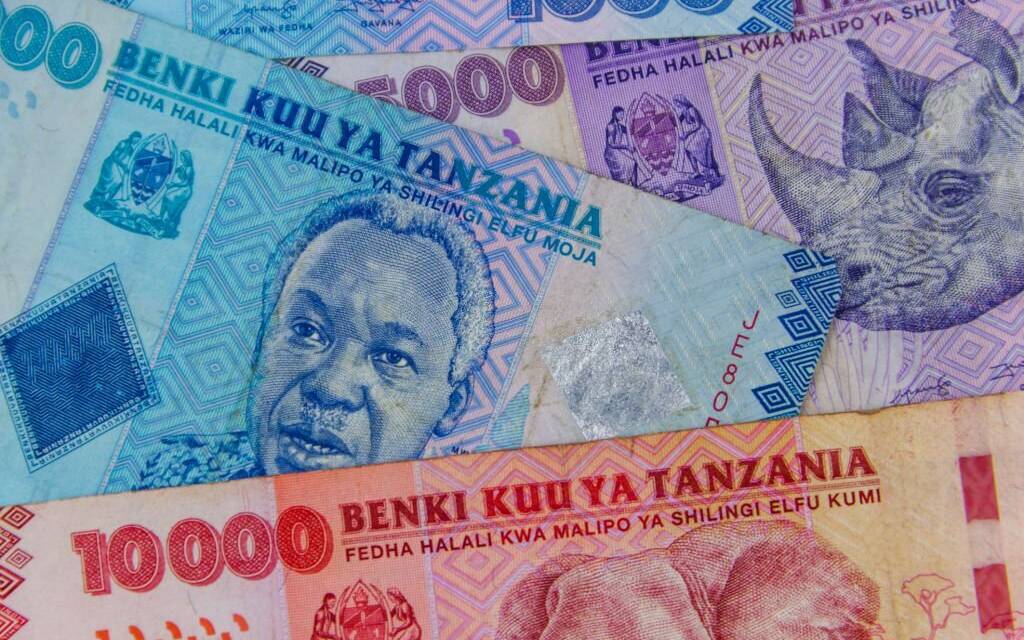Introduction
Tanzania currency
Welcome to our Tanzania Currency Guide! As with any country, currency plays a vital role in Tanzania’s economy, trade, and tourism. In this Tanzania currency guide, we’ll cover: The history of Tanzania’s currency; Its evolution; Its denominations; Its security features; Its role in the country’s economy; Its exchange rates; Its foreign currency; Its impact on Tanzania’s tourism industry; Its hobby status; Tips on starting your Tanzania currency collection.
Key Takeaways:
- The currency of Tanzania is based on the East African Shilling, which was introduced in the early 1900s.
- The current official currency in Tanzania is the Tanzanian shilling.
- There are different denominations of Tanzanian currency with different values and distinguishing features.
- Security features on Tanzania currency are implemented to prevent counterfeiting.
- The currency of Tanzania plays an important role in the economy, commerce, and tourism.
- Local currency is essential for daily transactions in Tanzania.
- There are some Tanzanian banknotes and Tanzanian coins that become more and more valuable over time.
The Evolution of Tanzania Currency
Currency dates back to colonial times. Before independence, it was called cowrie shell, pearls, or hoe.
When Tanzania became a British colony in the late 19th century, the Indian rupee was introduced as the official currency. However, this was later replaced by the East African Currency Board which issued the East African shilling in 1921. Tanzania continued to use this currency until 1966 when it introduced its own currency, the Tanzanian shilling.
The Tanzanian Shilling
The Tanzania shilling is a number of things. First, it has a design. Second, it has a value. Third, it has an inflation rate. Fourth, it has an exchange rate.
The current design of the Tanzania shilling features prominent national symbols such as Mount Kilimanjaro, the African elephant, and the Tanzanian coat of arms.
Today, the shilling is the official currency of Tanzania and is widely used by banks, hotels and businesses across the country.

Tanzanian Currency Denominations
Our Tanzania currency are available in notes and coins. The Bank of Tanzania is responsible for issuing and regulating the currency. Tanzania currently has seven banknotes in circulation with values of 500, 1000, 2000, 5000, 10000, 20000, and 50000 Tanzania shillings. Each banknote features a prominent national figure in Tanzania history on one side, with the national emblem displayed on the reverse.
Shillings in Tanzania are denominated in denominations of 50 shillings, 100 shillings, 200 shillings and 500 shillings. The denominations are indicated on the reverse of the coin.
The beauty of these designs lies in the fact that most of the animals and landscapes depicted in the Tanzania notes are indigenous to Tanzania, highlighting the country’s natural beauties and biodiversity. For example, on the 5000 shilling note, you will see a picture of wildebeest migration in Tanzania, and on the 1000 shilling note, a picture of Kilimanjaro, the country’s highest peak.
Security Features of Tanzanian Currency
There are several anti-counterfeiting features in Tanzania currency that protect the user’s security and the currency’s worth.
One of the most significant security features is the watermark, which is visible when holding the banknote up to the light. The watermark is a portrait of Julius Nyerere, Tanzania’s first president, and is located on the right-hand side of the banknote.
Specialized inks are another security measure. These inks are hard to imitate and change colour when tilted in different directions. Higher denominations such as 10,000, 20,000 notes also feature holograms, making them harder to fake.
Additionally, the Tanzania government regularly updates the design of its banknotes to incorporate new security features and stay ahead of counterfeiters. In 2020, the Bank of Tanzania introduced a new series of banknotes with enhanced security features, including a color-changing stripe and a tactile feature for the visually impaired.
“We are committed to ensuring that our currency is safe and secure for our citizens and visitors alike,” said a spokesperson for the Bank of Tanzania.
Overall, the security features present on Tanzania currency make it one of the most secure and reliable forms of currency in East Africa.
The Role of Tanzania Currency in the Economy
Tanzania money is officially called Tanzania shilling or Tsh, and it is the currency used in all transactions in the country. Currency plays an important role in the economy of Tanzania. Also, the Tanzania shilling is the currency of East African Community members Kenya, Uganda, and Rwanda.
The exchange rate plays an important role in Tanzania’s economy. The Tanzanian government aims to maintain a stable exchange rate in order to prevent sudden exchange rate fluctuations. Tanzanian companies use the exchange rate as a planning tool for their operations and financial management.
Dollar’s value also affects the tourism industry. Tanzania is among the countries most visited by tourists worldwide. Foreign tourists come to Tanzania to enjoy the country’s natural beauty, beautiful beaches, and various attractions. Foreigners need to convert their foreign currency into Tanzanian dollars in order to buy goods and services while visiting Tanzania. The Tanzanian exchange rate also affects the cost of travel and vacation for tourists.
Money in Tanzania also has a significant impact on international trade. The currency’s value affects import and export prices, which can affect the balance of trade and Tanzania’s economic development. The government of Tanzania aims to maintain a stable exchange rate for trade and economic growth.
Tanzania Currency: Exchange Rates and Foreign Currency in Tanzania
The TZS is the official currency of Tanzania and is widely accepted. As a traveler, understanding how to exchange your currency and exchange rates in Tanzania can help you make the most of your stay.
Exchange Rates
The exchange rate is based on the shilling’s exchange rate against major currencies like USD, EUR, etc. You can check the exchange rate on different websites or banks and exchange bureaux.
Another thing to remember is that the Tanzanian exchange rate can fluctuate a lot, so choose a reliable exchange rate provider. Some businesses, such as hotels, can charge a higher rate than the banks or the exchange bureaux.
Places to Exchange Money
There are several banks, exchange bureaux, and hotels in Tanzania where you can exchange money. Most banks in Tanzania offer the best money exchange rates, and they are usually safe and trustworthy. Exchange bureaux are also available in Tanzania, but you should check their exchange rates and their reputation before making an exchange.
While hotels provide convenience, their currency exchange rates are usually higher than banks or foreign exchange agencies. Therefore, if you choose to change currency at your hotel, make sure to check the currency exchange rate first.
What to Bring When Exchanging Money
Make sure you take your passport with you when you exchange your money in Tanzania. Most banks and money exchange agents will request your passport for verification. Some may also request a proof of payment such as a hotel reservation or a flight plan.
It is also important to bring your bills in good condition, as damaged or ripped bills may be declined or exchanged for a discounted rate.
Tanzania Currency and Tourism
Currency plays an important role in the country’s tourism industry. Visitors to Tanzania should be prepared to use and obtain the local currency for their trip.
Exchange currency at banks, ATMs, and other places that offer the best exchange rates and are safe. Do not exchange currency on the streets or with people, as this is illegal and could lead to you getting fake money.
Many hotels, shops, and restaurants accept credit cards, but it’s always wise to carry cash in case of any issues with electronic payments. Small bills and coins are particularly useful for making small purchases or tipping service providers.
Some businesses don’t accept torn, dirty or old notes when using Tanzania currency. Also, US dollar notes printed before 2006 aren’t accepted in Tanzania because of the high number of fake notes.
Overall, a good knowledge of Tanzanian currency and its usage in the tourism sector can significantly improve your tourist experience in Tanzania.
Collecting Tanzania Currency
Tanzania currency collection can be a fun and rewarding experience. Some notes and coins have become rare and valuable over the years, making them desirable to collectors.
Here are a few things to consider if you want to start your own collection:
- To get a better idea of what you’re after, look into the various denominations and series of Tanzanian currency.
- To learn more about what coins and currency dealers in Tanzania have to offer and current market values, visit them.
- Join forums or social media communities dedicated to currency collecting to meet other hobbyists and learn more about it.
- Protect your bills and coins with sleeves or albums to protect them from light, water, or handling.
- Look for limited edition or collector’s runs of banknotes or coins. These carry higher collector’s values.
Remember, collecting currency can be a fun and educational hobby, but it’s important to do your research and invest wisely. Happy collecting!
Conclusion
From its humble beginnings to its importance in the Tanzania economy today, Tanzania currency serves as a symbol of national identity and economic stability. Throughout this guide, we’ve explored the evolution of Tanzania currency and its various denominations, as well as the security features implemented to prevent counterfeiting.
We’ve also examined the role of Tanzania currency in the country’s tourism industry and its impact on foreign exchange rates. For those interested in collecting Tanzania currency, we’ve provided guidance on where to find rare banknotes and coins.
